A month so staggering in quality new releases that a new Mad Max film from George Miller barely cracked the top five, May kicks off the summer movie season with a bang. From the best American film of the year to a long-awaited U.S. release from the director who topped last month’s list, and much more, check out my picks of the best movies arriving this month below.
17. AGGRO DR1FT (Harmony Korine; May 10-16 in theaters)
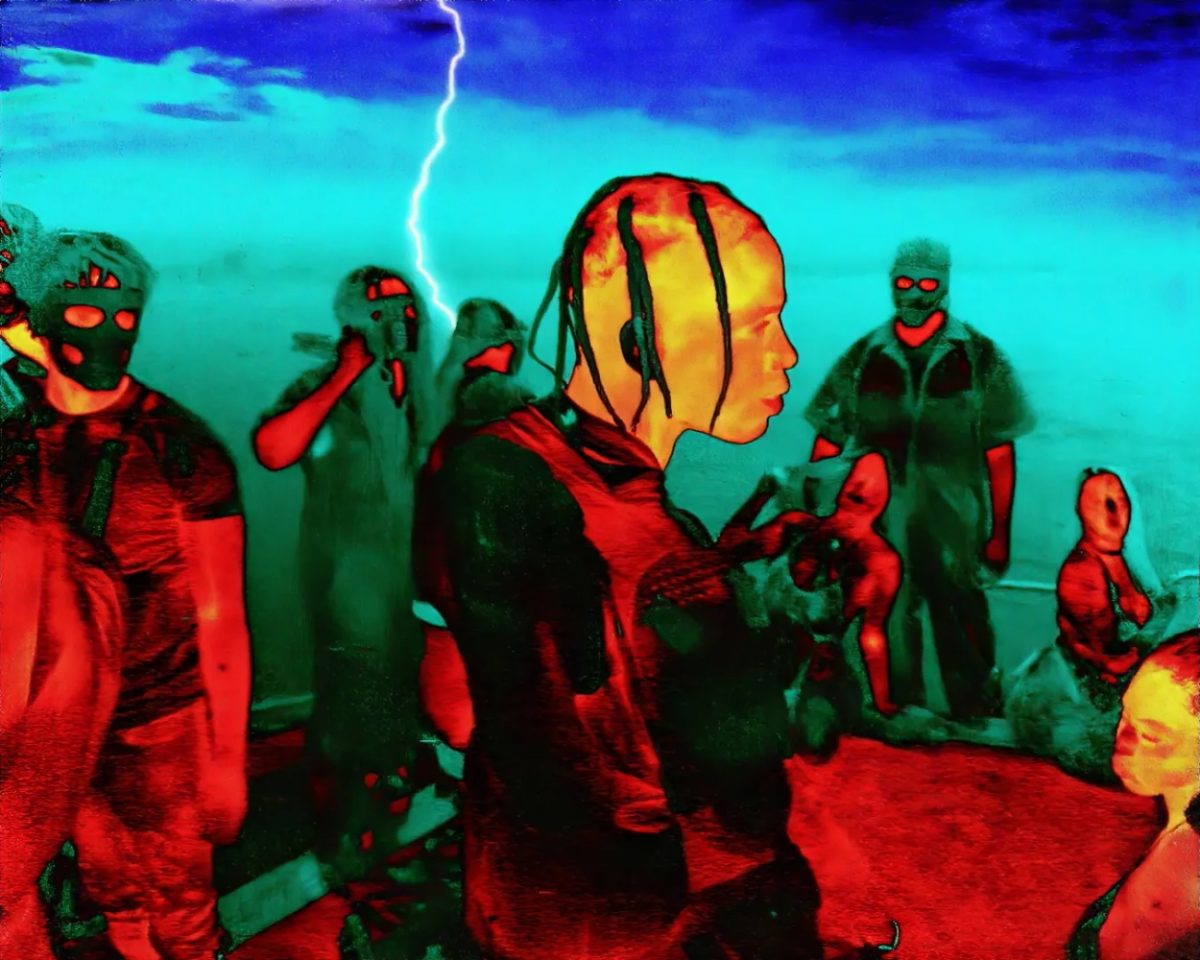
Though a film I almost actively hated in the moment, reflecting back on Harmony Korine’s AGGRO DR1FT, it’s certainly a nightmare that has stayed with me. Rory O’Connor said in his review, “Is it possible to leave your enfance without losing your terrible? The one-and-only Harmony Korine, now 50 years young, returns with Aggro Dr1ft, a premiere out-of-competition at the Venice Film Festival this week and, by my count, the only so far to have triggered mass walkouts and a ten-minute standing ovation. Shot entirely in infrared and using augmented reality effects and AI imaging tools, Aggro Dr1ft appears like the fever dream of a day spent drinking lean, watching music videos, and playing God of War and Grand Theft Auto. At times it’s funny, dazzling, almost beautiful; at others ugly, misogynistic, numbingly dull. Only he could have made it.”
16. Kidnapped (Marco Bellochio; May 24 in theaters)
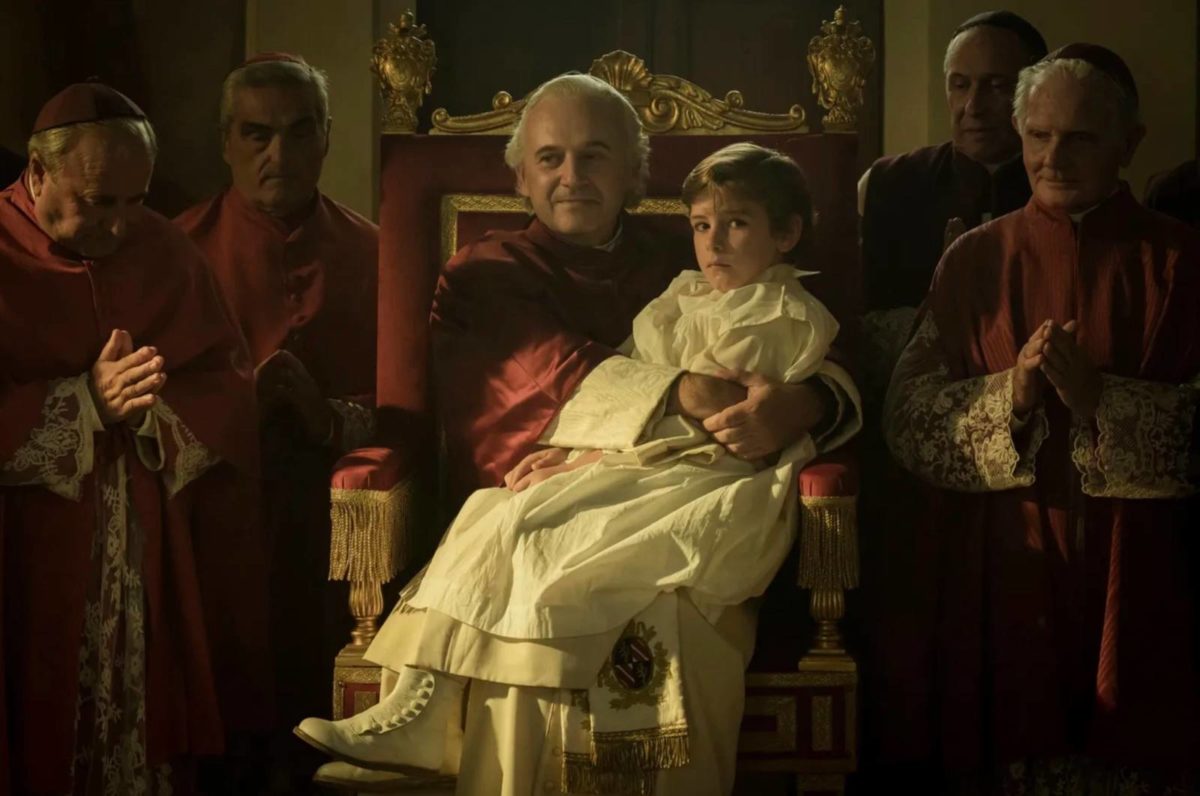
A story once in the hands of Steven Spielberg to adapt, 84-year-old Italian director Marco Bellocchio’s latest film follows Edgardo Mortara, a seven-year-old Jewish boy who was taken from his family in Bologna to be raised Catholic in the actual arms of Pope Pius IX. Conveyed in sweeping operatic fashion, Kidnapped is a feat of production design and compelling study of both political and religious power, even when certain stagnant passages leave something to be desired. Read Luke Hicks’ Cannes review for more.
15. Blackbird Blackbird Blackberry (Elene Naveriani; May 14 on MUBI)
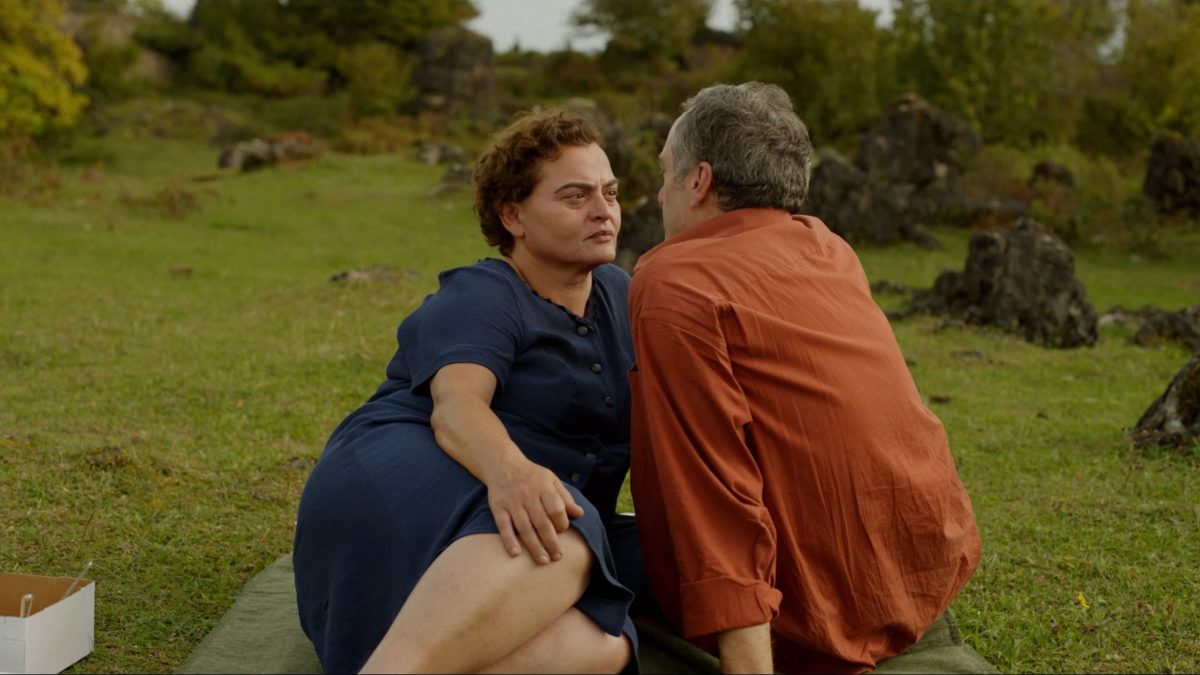
One of our festival favorites on the circuit last year is finally getting wider distribution this month. Rory O’Connor said in his review, “Georgian cinema continues to show thriving signs of life in Blackbird Blackbird Blackberry, a film about a contently independent woman who is faced with the thrills and spills of companionship for the first time. A breakout at Directors’ Fortnight at Cannes earlier this year and a deserved winner, last week, of both best film and actress at the Sarajevo Film Festival, Blackbird is the latest from Elene Naveriani, a 38-year-old director who co-wrote the script with the writer and feminist activist Tamta Melashvili. From that collaboration springs an unlikely tale about the shock of attraction, about how bodies appear depending on how we see them and who’s looking, and about the joys of touch and solitude and whether or not they need be mutually exclusive.”
14. The Contestant (Clair Titley; May 2 on Hulu)

If some of today’s reality shows can feel out-of-hand for what they put their contestants through, nothing compares to one of the first to ever hit the air. In 1988, aspiring comedian Tomoaki Hamatsu (aka Nasubi) got the “opportunity” to take part in a game show without knowing any of the parameters, resulting in him being placed in a solitary room for almost a year; things got crazier from there. Clair Titley’s well-paced documentary examines all angles of the ordeal, with insight from both the subject and the perpetrators––aka the producers. What emerges is a tale of both resilience and loneliness as well as a moving study of picking up the pieces of one’s life when reality has been irrevocably altered and betrayed.
13. The Last Stop in Yuma County (Francis Galluppi; May 10 in theaters and on VOD)
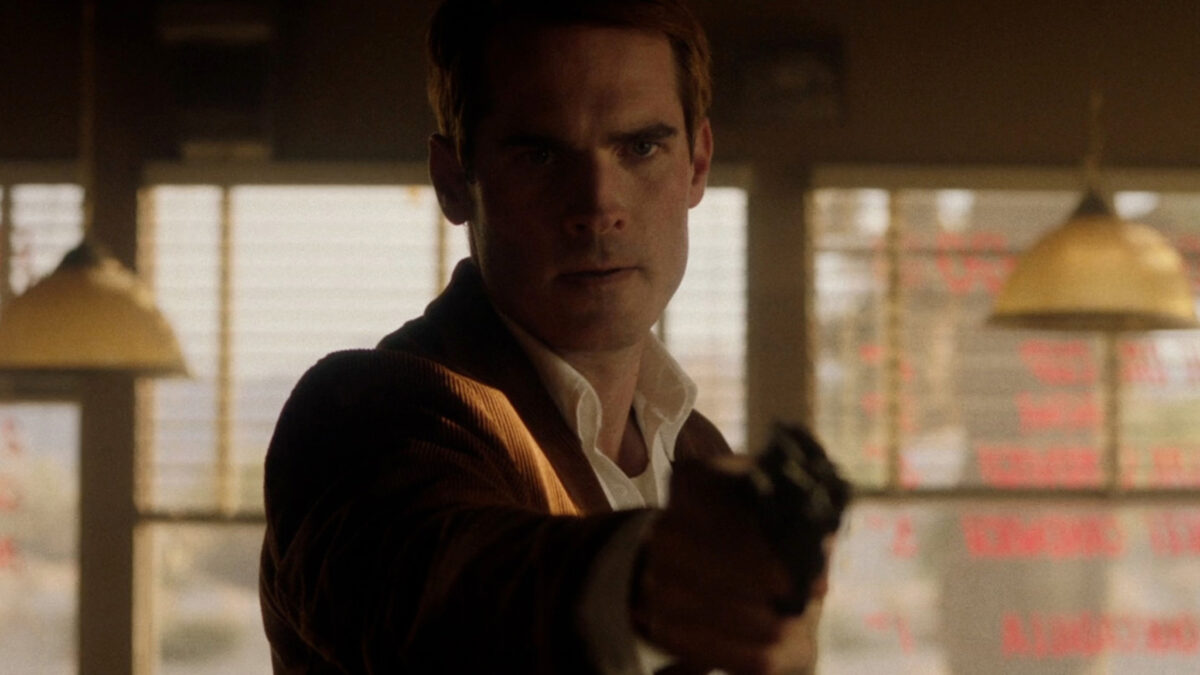
After watching Francis Galluppi’s deliciously entertaining, bloody one-location noir thriller The Last Stop in Yuma County, it’s easy to see how Sam Raimi warmed to his pitch for a new Evil Dead movie and hired him for the next installment. Galluppi’s highly accomplished debut feature follows a traveling knife salesman (a pitch-perfect Jim Cummings) who gets stuck at an Arizona diner in the middle of nowhere when some nefarious criminals stop in. With dialogue and turns that would make even the Coens smile, this is an homage that has an identity all its own.
12. Gasoline Rainbow (Bill Ross IV and Turner Ross; May 10 in theaters and May 31 on MUBI)
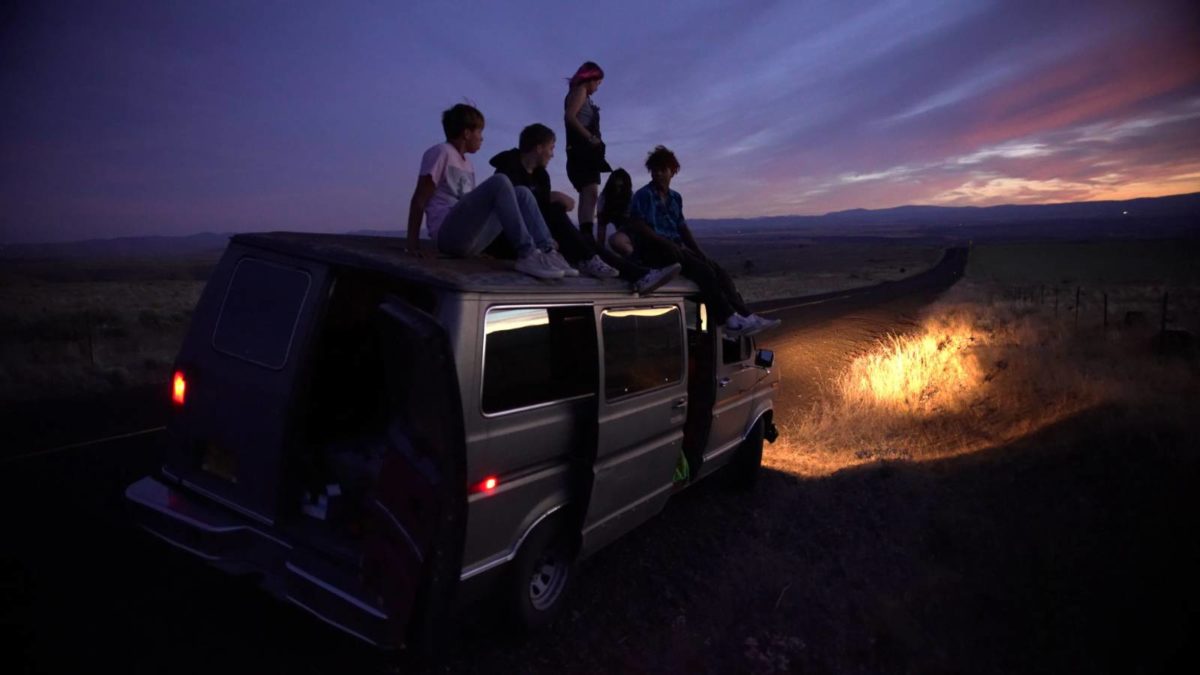
After rounding out a fruitful festival run that spanned Venice to last month’s First Look, Bill Ross IV and Turner Ross’s seventh feature Gasoline Rainbow opens this month. As Savina Petkova said in her Venice review, “Bill and Turner Ross approach the narrative with a deep understanding of vagrancy as soul-searching and the camaraderie it entails. For this purpose the journey is the destination, and while this may sound like a cliché, the vulnerability shared by all pours through the free-flowing visual aesthetics. The Ross Brothers directed, shot, and edited the film into a piece of mesmerizing realism, an end product that is much more than its two composites. A third, quasi-magical being, Gasoline Rainbow is alive and beating, with the protagonists’ characters coming through as versions of themselves, their worries as well as their disregard for the future.”
11. Flipside (Chris Wilcha; May 31 in theaters)

Premiering at TIFF last fall, Flipside follows filmmaker Chris Wilcha as he reflects on his past and what it means to live a life of creativity. Picked up by Oscilloscope Laboratories for a North American release with Judd Apatow onboard as executive producer, it’ll arrive this month. Christopher Schobert said in his review, “There is no surprise twist in Chris Wilcha’s Flipside, a documentary making its world premiere at the 2023 Toronto International Film Festival. This is not a true-crime doc or a story of unearthed family secrets. (Although there is lots of ephemera excavated after years of quasi-hoarding.) Instead of a twist, though, there is an audience awakening, one that takes a rather standard there-are-places-I-remember doc into surprisingly resonant territory. Ultimately, Flipside is a moving, funny, inventive film that may cause viewers to follow Wilcha’s lead and ask tough questions about their own lives. That is no small feat for a documentarian.”
10. Power (Yance Ford; May 10 in theaters and May 17 on Netflix)
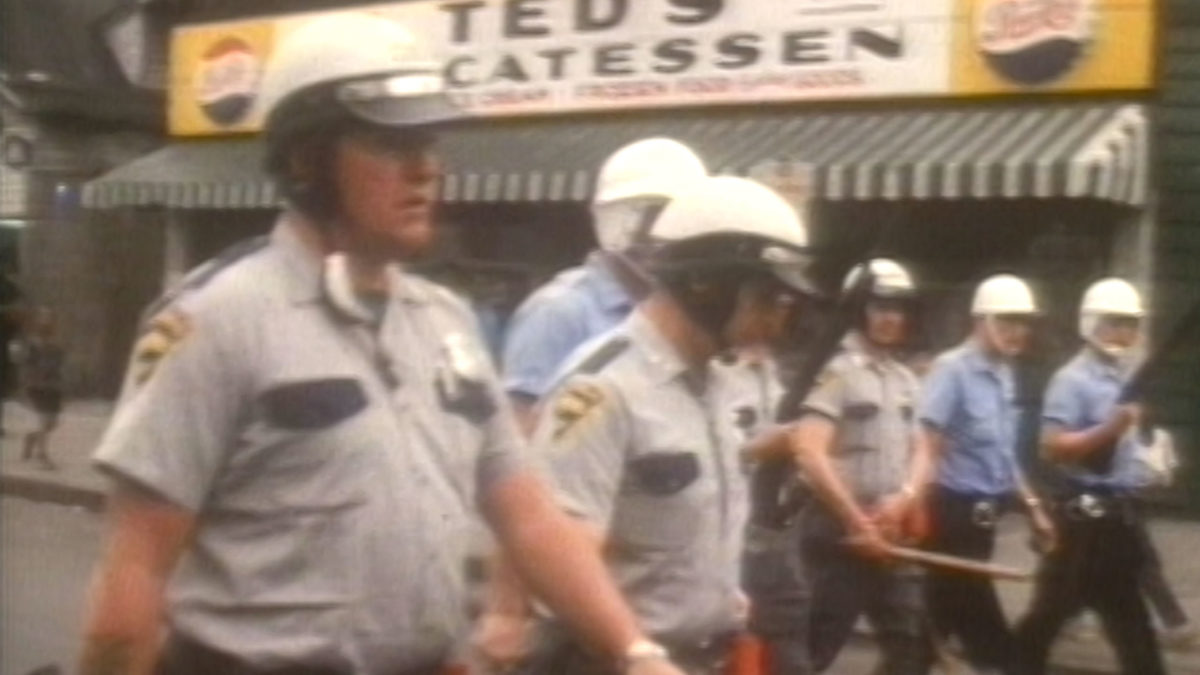
Oscar-nominated Strong Island director Yance Ford returned to Sundance with Power, a lively, detailed essay film that takes a deep look at the history of policing in the United States and unceasing expansion of its scope and scale to the detriment of marginalized communities. It’s another powerful, informative inquiry from the filmmaker about the failings of systems meant to protect citizens, and as Dan Mecca said in his Sundance review, “‘Police power is immediate power.’ These opening words from Redditt Hudson––former police officer and co-founder of the National Coalition of Law Enforcement Officers for Justice, Reform, and Accountability––haunt and inform the entirety of Yance Ford’s Power. Ford actually opens the film over black, informing viewers that what they are about to see is ‘an analysis of police history that I’d like you to consider.’ At the very least, curiosity is required to consider the facts that will come next.”
9. Samsara (Lois Patiño; May 31 in theaters)

Although seemingly not actually getting a distributor, sales company Benedita Sales will be giving Lois Patiño’s wonderfully transportive new feature Samsara a run starting at Metrograph this month. Leonardo Goi said in a rare A-grade review, “‘Did you know that we keep on hearing after we’re dead?’ The question comes up early into Lois Patiño’s Samsara but haunts the film from first shot to last, doubling as a précis of the multisensory feast this extraordinary journey through bodies, time, and space packs throughout. ‘Watching’ is too restrictive a word for the kind of experience Patiño has arranged. Here’s the rare film that invites your whole body into its universe––one whose haptic, aural, olfactive pleasures are just as vivid as its visual riches. It’s a tale that unspools as a Heraclitean river: you cannot step into it twice, for it is not the same film, and you are no longer the same person.”
8. In Our Day (Hong Sangsoo; May 17 in theaters)

A new year, a few new Hong Sang-soo films, and this May brings one of his recent standouts. Michael Frank said in his review, “Like other Hong Sangsoo films, In Our Day passes, on the surface, for simple fare. The prolific South Korean director layers weighty themes amidst naturalistic filmmaking, almost documentary-style in his willingness to let the camera sit without needing any extra flourishes. Cutting between two scenes––both playing out over a single afternoon––Hong focuses his energy on the dialogue between his characters, on the rapid intergenerational misconceptions. In doing so he muses on the pessimism of art, the somewhat meaningless nature of life, and how we interpret the actions and words of our fictional heroes.”
7. In a Violent Nature (Chris Nash; May 31 in theaters)
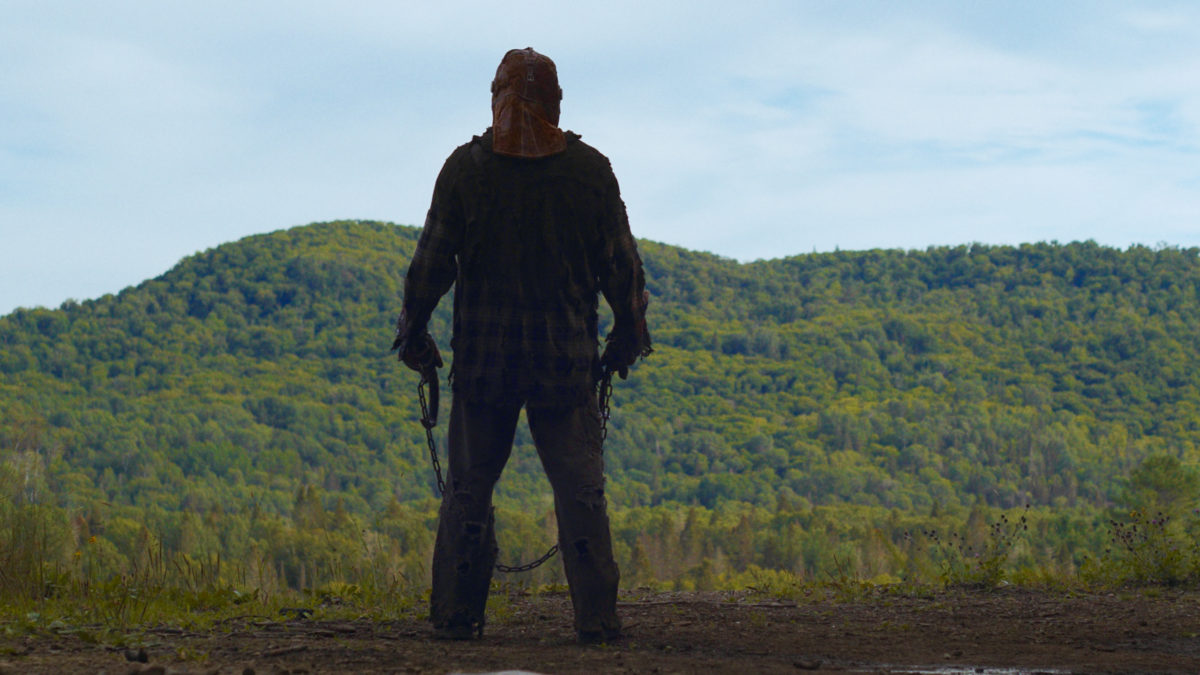
What new perspective can one bring to the horror genre? With his directorial debut, Chris Nash gives this question its resoundingly brutal, formally fascinating answer. Primarily following a murderer’s steps and slashes through his travels terrorizing those near a remote cabin, the wonderfully Béla Tarr-esque In a Violent Nature sticks to its meticulous conceit and delivers one of the most chilling horror movies I’ve seen in years.
6. Robot Dreams (Pablo Berger; May 31 in theaters)
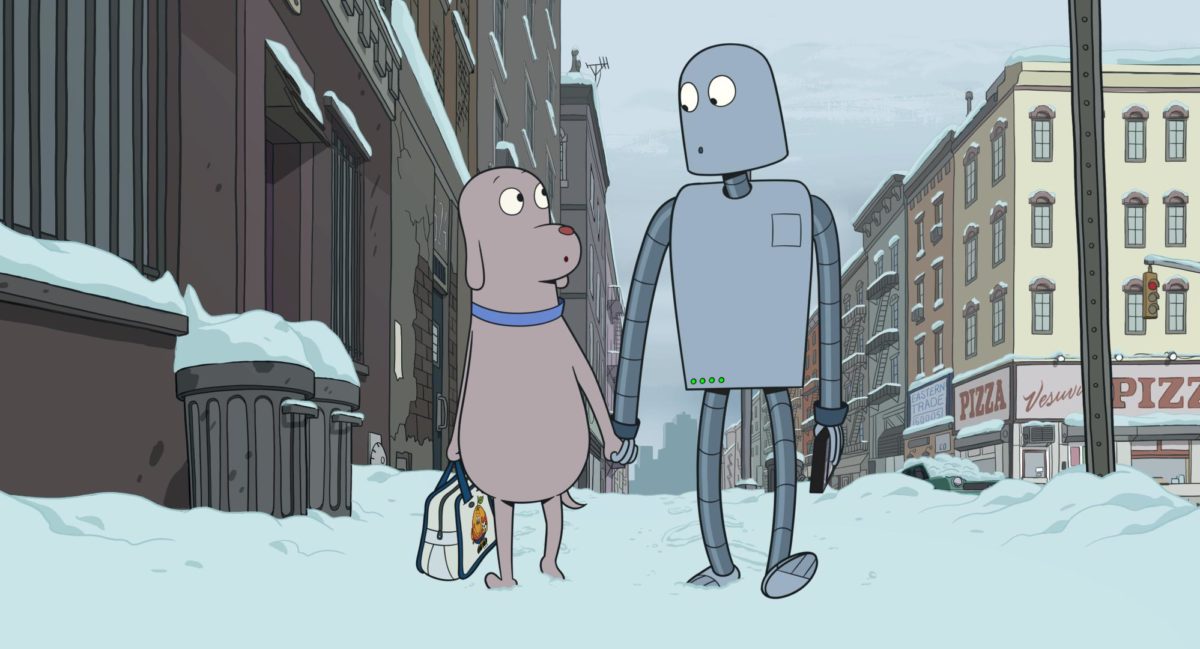
While Hayao Miyazaki deservedly took home the Oscar for The Boy and the Heron, another nominee is well worth your attention. Pablo Berger’s Cannes favorite Robot Dreams, which had an awards-qualifying run way back in December (solidifying it as a 2023 film), will properly open this month from NEON. John Fink said in his review, “By far one of the most delightful films of the year––even when it breaks your heart––Pablo Berger’s Robot Dreams is a deceptively simple take on companionship that uses robots and animals to tell a very human story about friendship and life. Adapted from Sara Varon’s 2007 graphic novel of the same name, Berger’s lively film respects the form, telling its story without dialogue and instead relying on music and sound effects to drive the story of Dog and Robot forth. Dog spends his life in a sterile East Village apartment, circa the 1980s––eating microwaved meals, playing pong, drinking Tab, and yearning for companionship in the shadow of his YOLO poster. Flipping around the channels, Dog stumbles across an ad for a companion robot and spends the next few days assembling his new friend.”
5. Furiosa: A Mad Max Saga (George Miller; May 24 in theaters)

When it comes to large-scale spectacle across the summer blockbuster slate, it’s hard to imagine another film living up to George Miller’s latest, returning to the Mad Max world nearly a decade after Fury Road. Even if Furiosa only has a quarter of its predecessor’s thrills and creativity, we’ll be content. The only factor that gives us major pause is cinematography coming courtesy of Simon Duggan; to keep expectations high, you may want to avoid looking up his prior credits.
4. Coma (Bertrand Bonello; May 17 in theaters)
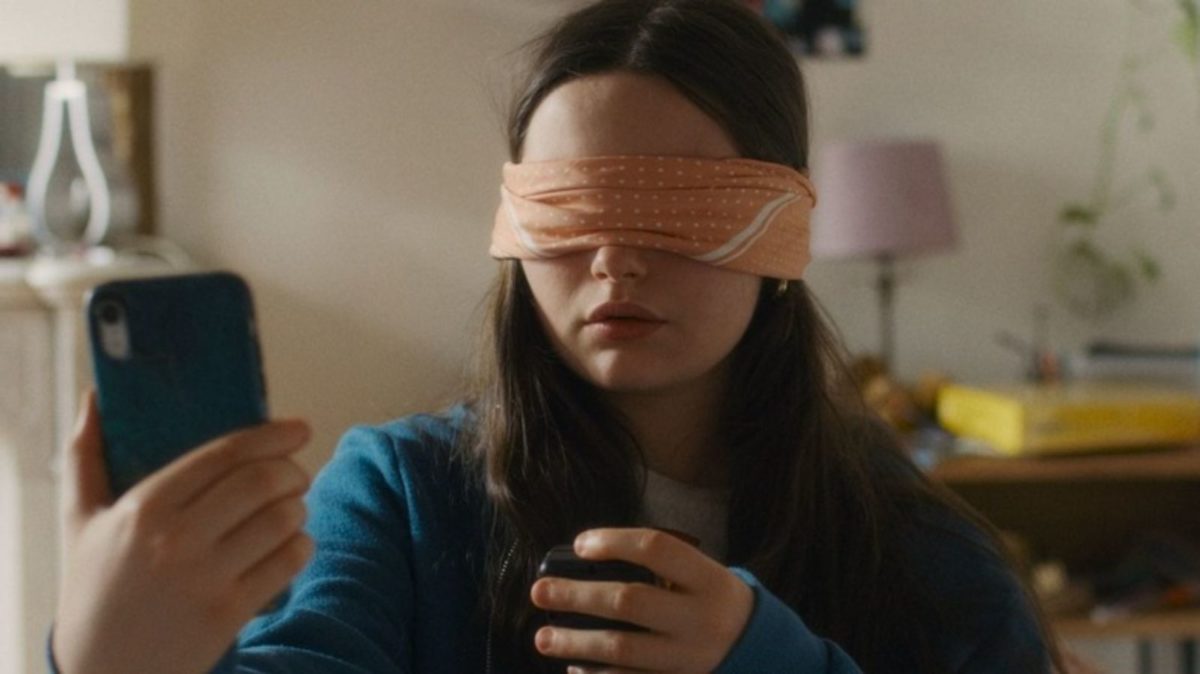
After directing the very best film of 2023 (and 2024) with The Beast, Bertrand Bonnello’s 2022 premiere Coma, the finest COVID-era snapshot, at long last gets a U.S. release. David Katz said in his review, “A contemporary cliché that weakly attempts to diagnose what ails us in modern life is the idea of being addled by technology––of our minds and attention spans swamped by screens, content, scrolling. But as the pandemic hit this notion gained a new relevance: it’s not that the virtual realm of content and media was luring us away from our reality––faced with an indefinite lockdown, it had finally become our sole one. Even though this can be poorly rendered by some, it’s the more sensitive and aware artists, such as Bertrand Bonello with his new feature Coma, that remind of the urgency to confront it.”
3. Hit Man (Richard Linklater; May 24 in theaters and June 7 on Netflix)

While much of the world will have to wait until next month to see one of the year’s best audience-friendly crowdpleasers isolated on the small screen in their home, those who have the chance this month to catch Richard Linklater’s Hit Man in theaters should jump at the opportunity. Luke Hicks said in his review, “Walking into the screening, I confidently told my friends I didn’t think Powell had what it took to be a leading man, the hot take machine that I am. Walking out, I was washing my mouth out with soap. Powell’s performance is one thing––an absolute blast––but the fact that he hands-on-produced and co-wrote the film is something else entirely. It’s a burgeoning phase that proves there’s much more to the actor than handsome acting chops and a traditionally masculine glow (though both are certainly, thankfully on full display). One small step for Richard Linklater, one giant leap for Glen Powell.”
2. Evil Does Not Exist (Ryusuke Hamaguchi; May 3 in theaters)

Is there any working director on a streak like Ryusuke Hamaguchi? Since 2015’s breakout Happy Hour, five consecutive films have shown a budding master at work. Rory O’Connor said in his review of the Japanese director’s latest, “Amongst a typically raucous lineup at this year’s Venice Film Festival comes Evil Does Not Exist, a work in which tensions rise over little more than the placement of a septic tank. It’s the latest from director Ryusuke Hamaguchi and his first since 2021’s miraculous double-punch of Wheel of Fortune and Fantasy and Drive My Car. Evil concerns a clash of urban and rural sensibilities: a story about a small but hardy group of people who wish to stop the development of a glamping site. Devotees of Kelly Reichardt’s sylvan melancholies will feel perfectly at home.”
1. I Saw the TV Glow (Jane Schoenbrun; May 3 in theaters)
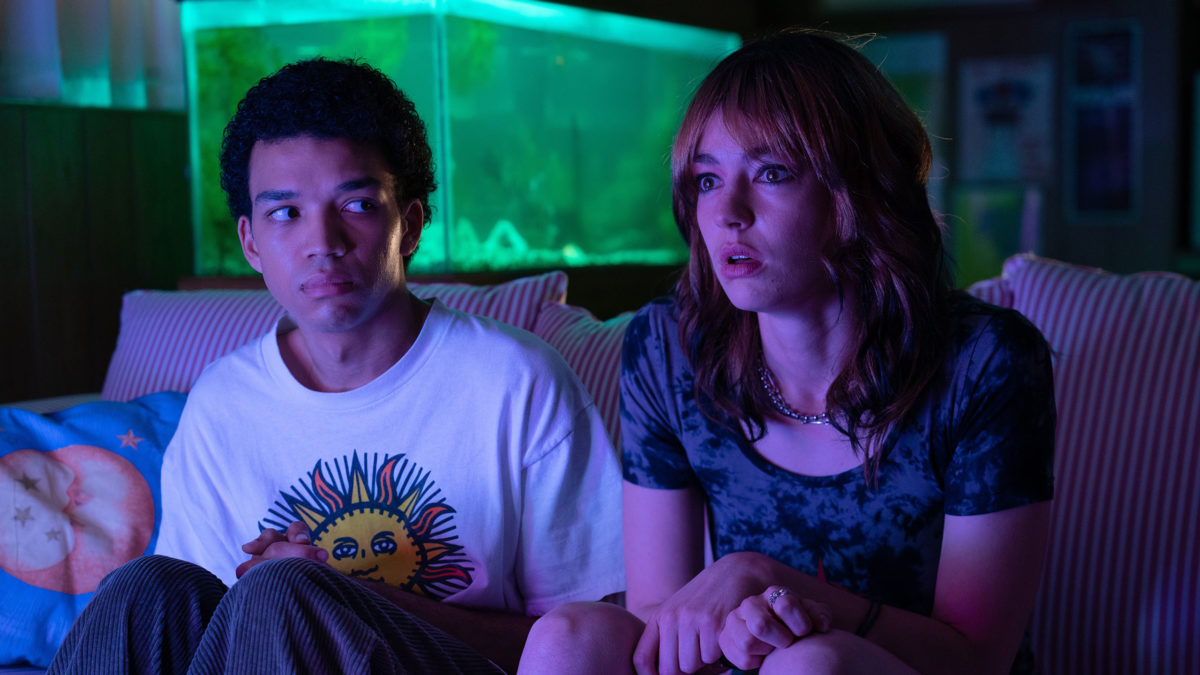
Tender yet rageful, quiet yet deafening, intimate yet expansive, Jane Schoenbrun’s I Saw the TV Glow is a towering achievement of total artistic freedom, the kind of work where certain images will be eternally burned into your mind and the feelings it exudes will linger far after the credits roll. Expanding the aura of loneliness from We’re All Going to the World’s Fair into a vastly more ambitious, layered canvas, Schoenbrun’s third feature tells the story of Owen, played early on by Ian Foreman and later by Justice Smith in a revelatory performance. Following the isolated journey of questioning his identity through childhood and adulthood, we witness his special infatuation with a late-night TV show and the ineradicable bond it creates with another lonely soul, Maddy (Brigette Lundy-Paine). The deeply expressive, imaginative ways in which Schoenbrun is able to articulate one’s struggle with identity is nothing short of staggering. This may not be a horror film in the conventional sense––in fact, every directorial decision assertively refutes convention––but I Saw the TV Glow emphatically argues nothing is more terrifying than being trapped in a body you don’t desire and having no words to properly express the feeling. Continue reading my full review.
More Films to See
- Dogleg (May 1)
- The Idea of You (May 2)
- Wildcat (May 3)
- Slow (May 3)
- New Life (May 3)
- A Prince (May 10)
- Babes (May 17)
- The Strangers: Chapter 1 (May 17)
- Taking Venice (May 17)
- Solo (May 24)
- Songs of the Earth (May 24)
- The Dead Don’t Hurt (May 31)
- Ezra (May 31)
